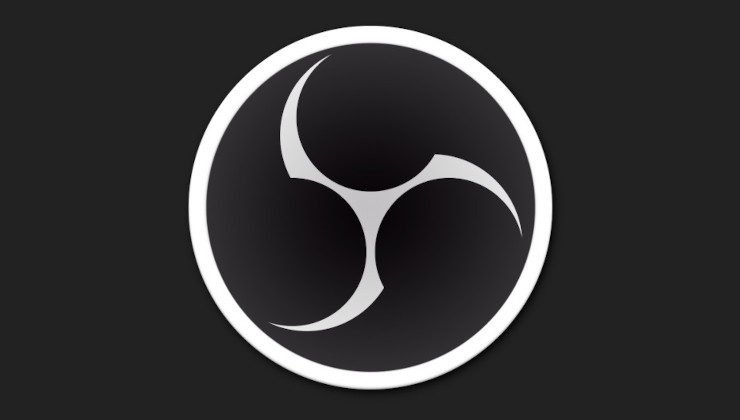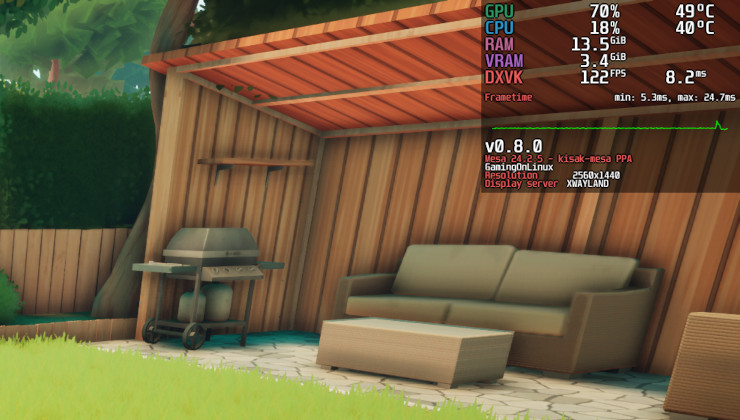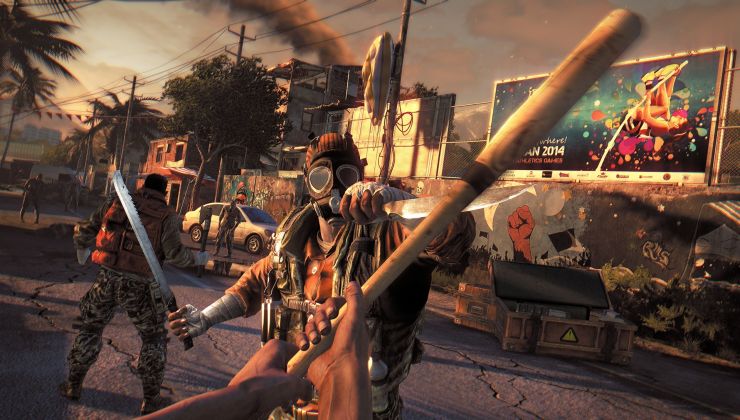Video recording and livestreaming tool OBS Studio version 30.2 is officially out now, bringing with it various new features and a nice few Linux improvements too.
For Linux users this release adds in native NVENC encoder support, which includes NVENC AV1! Plus there's also now shared texture support for the NVENC encoder, QuickSync encoder and VA-API encoder. For Linux they're also now enforcing the Qt Fusion style and they've also combined the PipeWire window/display capture into unified "Screen Capture" source to align with other platforms.
There's also a new Hybrid MP4 output format in Beta that "Combines fault-tolerance of fragmented MP4 with wide compatibility and faster access times of regular MP4", which also supports chapter markers in the file.
Some other new features include Enhanced RTMP/FLV multi-track audio and video, HEVC support to WebRTC output, an upgrade to the theme system, plus various other smaller UI improvements and lots of bug fixes.
One major new feature with Multitrack Video streaming (known as Enhanced Broadcasting on Twitch) was added in, but that's currently only supported on Windows with other operating systems planned for a future release.
See more in the release notes.
Why not include AMF too while they where at it? I know I can use va-api but it sucks compared to AMF.Sucks in what way? They're just different APIs for the same hardware.
Did AMF also add support for radv as well?It did. Stable support landed in the [latest release](https://github.com/GPUOpen-LibrariesAndSDKs/AMF/releases/tag/v1.4.34).
Why not include AMF too while they where at it? I know I can use va-api but it sucks compared to AMF.
AMF uses Vulkan video. So better ask, why not include Vulkan video directly to OBS?
Last edited by Shmerl on 14 Jul 2024 at 4:13 pm UTC
Most people use radv and vulkan video encoding is experimental right now in mesa, it's behind a flag and if you try to use it even with the most basic vulkan video encoding sample it will crash your computer (I tried it myself). Vulkan video encoding works fine with nvidia though (at least with hevc).Why not include AMF too while they where at it? I know I can use va-api but it sucks compared to AMF.
AMF uses Vulkan video. So better ask, why not include Vulkan video directly to OBS?
Vaapi and amf are also already implemented in ffmpeg so obs gets them "for free". Ffmpeg doesn't support vulkan video encoding yet (primarly because amd is lagging behind in their implementation so the implementation in ffmpeg and gstreamer has been delayed as well).
Last edited by nnohonsjnhtsylay on 14 Jul 2024 at 7:55 pm UTC
If ffmpeg is lagging behind with Vulkan video support, then I guess it should catch up too.
Last edited by Shmerl on 14 Jul 2024 at 8:59 pm UTC
Sucks in what way?
Slow with bad quality at a given bitrate, and more often than not just overloads and crashes.
AMF uses Vulkan video. So better ask, why not include Vulkan video directly to OBS?
Still need AMD's bit though to use the hardware.
If it was as simple as that nvenc,AMF ect wouldn't be needed for any graphics card.
Given that AMF has RADV support now I would have thought it would be a no brainer to add by default to OBS from now on.
Still need AMD's bit though to use the hardware.
If it was as simple as that nvenc,AMF ect wouldn't be needed for any graphics card.
Given that AMF has RADV support now I would have thought it would be a no brainer to add by default to OBS from now on.
Not according to AMD developers. AMF used to rely on Vulkan-like functionality plugging into hardware's ioctl, because Vulkan video was still work in progress. But now Vulkan spec and drivers have that through Vulkan API, so AMF now uses Vulkan proper, not hardware directly. So basically, you don't need to use AMF if you want to use same Vulkan video functions.
So yes, I'd say OBS and anyone else doesn't need AMF at all, as long as they know / want to use Vulkan. The only reason to support AMF according to AMD developers are some applications that already use it and can't move to Vulkan for whatever reason (like no one is developing them). And OBS isn't such case clearly, so it would be a complete waste of effort for them to add AMF support. Same goes for ffmpeg. They should focus on Vulkan video.
Last edited by Shmerl on 14 Jul 2024 at 10:04 pm UTC
Still need AMD's bit though to use the hardware.
If it was as simple as that nvenc,AMF ect wouldn't be needed for any graphics card.
Given that AMF has RADV support now I would have thought it would be a no brainer to add by default to OBS from now on.
Not according to AMD developers. AMF used to rely on Vulkan-like functionality plugging into hardware's ioctl, because Vulkan video was still work in progress. But now Vulkan spec and drivers have that through Vulkan API, so AMF now uses Vulkan proper, not hardware directly. So basically, you don't need to use AMF if you want to use same Vulkan video functions.
So yes, I'd say OBS and anyone else doesn't need AMF at all, as long as they know / want to use Vulkan. The only reason to support AMF according to AMD developers are some applications that already use it and can't move to Vulkan for whatever reason (like no one is developing them). And OBS isn't such case clearly, so it would be a complete waste of effort for them to add AMF support. Same goes for ffmpeg. They should focus on Vulkan video.
Is va-api using this technique of hardware encode? If so it needs some serious work to match AMF
Will vulkan vid encode also do opengl based apps ?
Is va-api using this technique of hardware encode? If so it needs some serious work to match AMF
Will vulkan vid encode also do opengl based apps ?
They said VAAPI uses alternative ways but calls same ioctl-s for the hardware, though Vulkan video is more comprehensive except for one missing issue related to color management. So Vulkan API has to implement that. But in some ways Vulkan video is already more flexible than VAAPI.
Sucks in what way?
Slow with bad quality at a given bitrate, and more often than not just overloads and crashes.
Did you test with OBS? I know they had bugs in their VAAPI implementation causing worse quality at some point, but those should be mostly fixed in 30.x. Also Mesa improved video encode quality on AMD's VCN in Mesa 23.3 and older VCE/UVD hardware in 24.0. You might be basing your opinion on outdated information.
For me there was no real difference in speed, quality or resource usage between the APIs, testing with ffmpeg on latest stable Mesa. And that makes sense as both make use of the same encoding hardware. I pretty much only tested AV1 encoding though, and not very thoroughly. YMMV.
Still need AMD's bit though to use the hardware.
Mesa doesn't need any proprietary bits to access the video encode hardware.
Last edited by tuubi on 15 Jul 2024 at 2:51 pm UTC
Sucks in what way?
Slow with bad quality at a given bitrate, and more often than not just overloads and crashes.
Did you test with OBS? I know they had bugs in their VAAPI implementation causing worse quality at some point, but those should be mostly fixed in 30.x. Also Mesa improved video encode quality on AMD's VCN in Mesa 23.3 and older VCE/UVD hardware in 24.0. You might be basing your opinion on outdated information.
For me there was no real difference in speed, quality or resource usage between the APIs, testing with ffmpeg on latest stable Mesa. And that makes sense as both make use of the same encoding hardware. I pretty much only tested AV1 encoding though, and not very thoroughly. YMMV.
Still need AMD's bit though to use the hardware.
Mesa doesn't need any proprietary bits to access the video encode hardware.
Tried with mesa 24.1 and OBS 30.1.
Mesa doesn't need any proprietary bits to access the video encode hardware.
That maybe the case but why is it so bad then if using the hardware to the full extent that AMF can?
That maybe the case but why is it so bad then if using the hardware to the full extent that AMF can?
What exactly is bad? Vulkan video in Mesa is very new and barely anything is using it. The only example I know is mpv for decoding.
Sucks in what way?
Slow with bad quality at a given bitrate, and more often than not just overloads and crashes.
Did you test with OBS? I know they had bugs in their VAAPI implementation causing worse quality at some point, but those should be mostly fixed in 30.x. Also Mesa improved video encode quality on AMD's VCN in Mesa 23.3 and older VCE/UVD hardware in 24.0. You might be basing your opinion on outdated information.
For me there was no real difference in speed, quality or resource usage between the APIs, testing with ffmpeg on latest stable Mesa. And that makes sense as both make use of the same encoding hardware. I pretty much only tested AV1 encoding though, and not very thoroughly. YMMV.
Still need AMD's bit though to use the hardware.
Mesa doesn't need any proprietary bits to access the video encode hardware.
Tried with mesa 24.1 and OBS 30.1.
Mesa doesn't need any proprietary bits to access the video encode hardware.
That maybe the case but why is it so bad then if using the hardware to the full extent that AMF can?
I don't know. As I said, with ffmpeg directly there was no downside to VAAPI compared to AMF for me, and we've both got RDNA3 GPUs with VCN 4.0. A quick search didn't come up with anything confirming your findings either.
And then I found this:
https://obsproject.com/wiki/AMF-HW-Encoder-Options-And-Information
Now I'm a bit confused. Seems like OBS already has an AMF encoder. Isn't this what you were asking for? Or is it not available on Linux or something?
OBS already has an AMF encoder.
This is what I use, like stated before I have used va-api it's just not even close to AMF as AMF actually works reliably and good quality recording with next to zero performance hit.
What exactly is bad?
Slow with bad quality at a given bitrate, and more often than not just overloads and crashes.
OBS already has an AMF encoder.
This is what I use, like stated before I have used va-api it's just not even close to AMF as AMF actually works reliably and good quality recording with next to zero performance hit.
I guess I read this incorrectly:
Why not include AMF too while they where at it?
I thought you meant they should include AMF in OBS. The article doesn't mention it because it's not a new feature in 30.2.
Slow with bad quality at a given bitrate, and more often than not just overloads and crashes.
I'm not sure I understand it. OBS has no Vulkan video support at all. So how can you test it to crash with it? The only thing I know now that has Vulkan video support is mpv, as I said, and that's decoding:
https://github.com/mpv-player/mpv/discussions/13909
I haven't seen any application that's using Vulkan video for encoding, besides AMF itself.
Last edited by Shmerl on 15 Jul 2024 at 10:04 pm UTC








 How to set, change and reset your SteamOS / Steam Deck desktop sudo password
How to set, change and reset your SteamOS / Steam Deck desktop sudo password How to set up Decky Loader on Steam Deck / SteamOS for easy plugins
How to set up Decky Loader on Steam Deck / SteamOS for easy plugins
See more from me